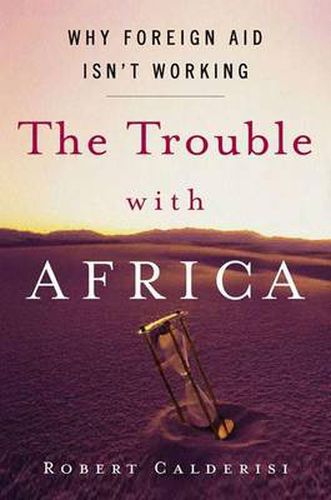Readings Newsletter
Become a Readings Member to make your shopping experience even easier.
Sign in or sign up for free!
You’re not far away from qualifying for FREE standard shipping within Australia
You’ve qualified for FREE standard shipping within Australia
The cart is loading…






After years of frustration at the stifling atmosphere of political correctness surrounding discussions of Africa, long time World Bank official Robert Calderisi speaks out. He boldly reveals how most of Africa’s misfortunes are self-imposed, and why the world must now deal differently with the continent.
Here we learn that Africa has steadily lost markets by its own mismanagement, that even capitalist countries are anti-business, that African family values and fatalism are more destructive than tribalism, and that African leaders prey intentionally on Western guilt. Calderisi exposes the shortcomings of foreign aid and debt relief, and proposes his own radical solutions.
Drawing on thirty years of first hand experience, The Trouble with Africa highlights issues which have been ignored by Africa’s leaders but have worried ordinary Africans, diplomats, academics, business leaders, aid workers, volunteers, and missionaries for a long time. It ripples with stories which only someone who has talked directly to African farmers–and heads of state–could recount.
Calderisi’s aim is to move beyond the hand-wringing and finger-pointing which dominates most discussions of Africa. Instead, he suggests concrete steps which Africans and the world can take to liberate talent and enterprise on the continent.
$9.00 standard shipping within Australia
FREE standard shipping within Australia for orders over $100.00
Express & International shipping calculated at checkout
After years of frustration at the stifling atmosphere of political correctness surrounding discussions of Africa, long time World Bank official Robert Calderisi speaks out. He boldly reveals how most of Africa’s misfortunes are self-imposed, and why the world must now deal differently with the continent.
Here we learn that Africa has steadily lost markets by its own mismanagement, that even capitalist countries are anti-business, that African family values and fatalism are more destructive than tribalism, and that African leaders prey intentionally on Western guilt. Calderisi exposes the shortcomings of foreign aid and debt relief, and proposes his own radical solutions.
Drawing on thirty years of first hand experience, The Trouble with Africa highlights issues which have been ignored by Africa’s leaders but have worried ordinary Africans, diplomats, academics, business leaders, aid workers, volunteers, and missionaries for a long time. It ripples with stories which only someone who has talked directly to African farmers–and heads of state–could recount.
Calderisi’s aim is to move beyond the hand-wringing and finger-pointing which dominates most discussions of Africa. Instead, he suggests concrete steps which Africans and the world can take to liberate talent and enterprise on the continent.